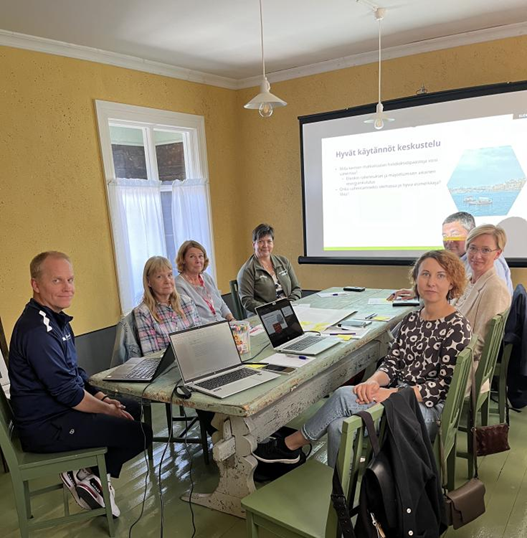DETOCS Regional Stakeholder Meetings: Recap & Next Steps
Regional Stakeholder Group Meetings Foster Sustainable Tourism in the DETOCS Project
The Regional Stakeholder Group (RSG) meetings within the Interreg Europe DETOCS – Decarbonising the Tourism Industry Post-COVID-19 Support – project play a pivotal role in fostering collaboration among regional partners to promote sustainable tourism.
Comprising 12 project partners and 1 Advisory Partner from Slovenia, Greece, Malta, Finland, Italy, Bulgaria, Hungary, Germany, and the Netherlands, DETOCS aims to address the challenges of decarbonising the tourism industry in the post-pandemic era.
The project's goal is to identify best practices, exchange knowledge, and shape policies that encourage a green transition in tourism.
Purpose & Structure of Regional Stakeholder Group Meetings
Each RSG meeting engages local stakeholders, including representatives from public and private sectors, non-governmental organisations, tourism professionals, and academic experts.
These meetings facilitate dialogue on challenges and opportunities related to decarbonising tourism. Participants review analyses like PESTEL, SWOT, and the Eisenhower Matrix to assess their region’s status in the green transition, allowing tailored solutions to each region’s needs.
In Slovenia, the Local Energy Agency Spodnje Podravje (LEASP) has identified initiatives like the "Contact Point RES," which supports investors in renewable energy projects. This initiative, presented at the third RSG meeting, may serve as a good practice for replication across partner regions. Similarly, the Region of Crete has highlighted the economic and environmental benefits of energy-efficient interventions in small hotels.
Key Discussions and Outcomes
A recurring theme in RSG meetings has been the benefits of adopting green technologies. In South Ostrobothnia, Finland, stakeholders emphasised improving digital skills within SMEs and addressing workforce shortages. Proposed solutions included training programs to enhance digital literacy, crucial for the evolving tourism landscape.
In Malta, DETOCS partners have made strides in incorporating sustainability indicators, exemplified by the "GUEST" and TSI projects, which aim to establish measurable benchmarks for sustainable practices. The Italian region of Campobasso focuses on forming Energy Communities and incentivising renewable energy use, such as solar panels, to mitigate the environmental impact of tourism facilities.
Challenges and Recommendations
Despite identifying good practices, challenges persist. In Crete, stakeholders raised concerns about lengthy loan approval processes for small hotels seeking energy-efficient upgrades. In South Ostrobothnia, the lack of accessible transportation for tourists was noted as a barrier to sustainable tourism in remote areas.
These challenges highlight the need for policy interventions that focus on infrastructure improvements alongside financial incentives. In Hungary, representatives from the Irota EcoLodge and Zalakaros Spa showcased climate-neutral tourism models, inspiring other regions while highlighting the need for broader policy support to scale initiatives nationwide.
Next Steps
The RSG meetings have been essential in fostering collaboration and knowledge exchange among project partners. Each region contributes unique challenges and solutions to the collective effort to decarbonise tourism. Continued engagement is shaping policy and creating a legacy of sustainable tourism practices that benefit both the environment and the economy.
Looking ahead, the next phase will continue these collaborative efforts, with the fourth Exchange of Experience Event scheduled for October 2024 in Crete. This event will refine strategies and best practices identified in the regional stakeholder meetings, enabling the decarbonisation of the tourism sector across Europe and helping regions achieve sustainability goals.
